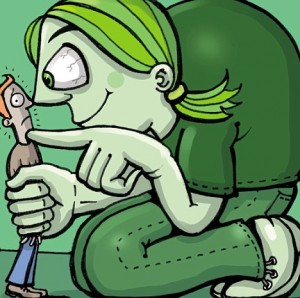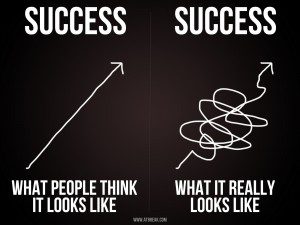Guest Writer for Wake Up World
At some stage of our lives we all experience emotional dysfunction to various degrees, especially when we’re maturing. In many cases it is a part of the learning curve as we grow into our more developed selves. Simple examples are that we might dwell on a problem too long, get upset or angry too easily, view life pessimistically or think self-abusive thoughts consistently.
There are many negative thought patterns and feelings that we can get caught up in. If they are a temporary experience then there is no real harm done – in fact we may have learned something about ourselves and others through the experience. It’s when these thoughts and emotions become a permanent characteristic of our daily lives that they become self-harming. In these cases, poor emotional regulation might impact us more significantly and even result in a mental disorder.
Ultimately though, if we understand that happiness and sadness are fleeting experiences, we set the stage to make contentment a permanent feature of our heart and mind and break the emotional patterns that disturb our inner peace.
[pro_ad_display_adzone id=”110028″]
It is of course not the ideal to be happy all the time; otherwise we are potentially suppressing or avoiding part of the human experience. For example, if a loved one passes away, obviously we’re not going to be happy about it. It is perfectly normal to feel grief, and the same goes with disappointment if we don’t get that job we really wanted. We need to accept that being happy and sad, even at the same time, is a natural state of human affairs. Yet when those negative feelings become overwhelming and dictate how we operate, it is indicative of emotional dysfunction and the mental and physical health complications that can manifest from it.
When these thoughts and emotions disturb our inner peace, we should embrace the emotional rollercoaster of highs and lows whilst aiming for permanent contentment. We can do this by relying on our fundamental beliefs or philosophies when our emotional and psychological health is challenged. For example, “regardless of the difficult experience I now face, I am content in life because I am fortunate enough to have had this beautiful existence in the first place”. If such a belief is our guiding truth, what we remind ourselves when life gets tough, then we have the key for establishing and maintaining inner peace in our lives.
In a previous article, 8 Emotional Patterns That Can Disturb Our Inner Peace, I discussed the following examples:
1. Feeling unforgiving towards others
2. Easily frustrated with small matters
3. Sadness and Depression
4. Anxiety prone
5. Negatively judging others
6. Jealous behaviour
7. Holding onto guilt
8. Often feeling offended.
These eight patterns are problematic if they are permanent mindsets that we live with. Not only do they make us suffer, but those around us too.
Continuing this discussion, here are…
8 More Emotional Patterns That Can Disturb Our Inner Peace
1. Vanity or excessive self-love
Excessive self-love manifests in many ways. It’s usually born from issues of insecurity. A poor self-image and self-esteem can also be at play. Essentially, if we’re vain, we’re in pain. We aren’t balanced, nor at peace.
Societal illustrations of beauty have warped our collective image of what’s beautiful. Sculpted bodies, make-up, clothes and hairstyles can add to the unique presentation of a person, but they’re not what fundamental beauty really is, nor what is truly important in our life. Beauty and attraction is not just physical – it’s also the emotional, intellectual, moral, behavioural and spiritual natures of a person, as well as other qualitiess.
 When we are vain, then we sacrifice some of our own beauty and also sacrifice some the experience of beauty we perceive in others. If we burden ourselves in the belief that we’re better than others, then we suffer. How can we expect ourselves to always reach those ideals? To be in constant competition with others (or our own self image) is unhealthy and will often bring up other negative states, like jealousy and envy.
When we are vain, then we sacrifice some of our own beauty and also sacrifice some the experience of beauty we perceive in others. If we burden ourselves in the belief that we’re better than others, then we suffer. How can we expect ourselves to always reach those ideals? To be in constant competition with others (or our own self image) is unhealthy and will often bring up other negative states, like jealousy and envy.
Vanity is also the excessive self-love of other personal attributes besides image. Sure, people have strengths and weaknesses, which mean for example that other people are going to be more intellectually developed than we are, just as we may be more emotionally developed than they are. So who then, is the better person?
Neither. We’re all essentially equal.
If we’re vain, then we’re most likely only focusing on our external strengths, which hide what’s going on inside of us. This might be how great our body looks, the money we earn, the skills that we have, the job we do, or the goals that we’ve achieved.
But they’re not forms of true success. Yes, they are successes in their own right, but they don’t guarantee us happiness. Being virtuous to ourselves and others is one true form of success. And anybody can achieve it, regardless of socio-economic, racial, cultural, health or other demographic influences.
2. Sexual addiction
Being addicted to sex is an emotionally dysfunctional state which is common with men, but it can also happen to women. I believe this is not just a product of our physiological and primal make up, such as the genetic and chemical constituents of the body, but also the result of our consumerist world, which bombards us with the message that fulfilling ego-based desires is what will ensure our happiness: Have sex. Buy porn. Objectify others. Look at how hot these women are. Keep satisfying yourself (and this message isn’t just limited to our sexual identity).
As a result, many are always trying to find their next ‘lay’; trying to tick another box whilst never being fully satisfied.
Now I’m not saying that paying heed to the sexiness of humanity is wrong, because there’s lots of raw beauty to be embraced and experienced. We love and we lust. That’s who we are. But if we’re addicted to having sex with as many people as we can, driven by ego instead of a desire to truly connect, then we may be experiencing an emotional imbalance that can inhibit us from being content. Ultimately, all emotional addictions are unhealthy, especially over the long term.
So much of mainstream society has forgotten how pure sex can be. It’s much more powerful when it’s appreciated on a deeper level, especially when we begin to evoke the divine energetic experiences that can accompany love-making and lust-making between two people. That’s the experience of sex that I believe we should functionally work towards.
3. Being plagued by stress
Stress is when our mind and body are temporarily tested to their limits. The chemicals that are released can be good for our overall health and performance, if stress is experienced in the short term. Therefore, we should always explore different activities that will release adrenaline and other beneficial hormones into our system, such as regular exercise.
Yet stress becomes unhealthy when we live in an anxious and nervous state on an ongoing basis. When we’re always freaking out about meeting that deadline. When we’re always worried about some aspect of our future. If we’re constantly living with stress in our lives then we’re not at peace. With the body’s flight/fight systems activated, long term states of stress leave us on a chemical edge, doing lasting damage to our mind and body.
Many people don’t understand that stress comes from within, not from without. Sure, some experiences are harder to emotionally deal with – they challenge us more than others – but every person responds differently to similar situations. This inherently means we have a level of control. We can’t blame our boss, our job, our partner, our children, our parents etc. It’s up to us to properly take care of ourselves, not others. When we blame others for the way we feel, we disempower ourselves from making positive change. We determine for how long we feel stressed or even if we feel stress in the first place. If we process highly pressured experiences in our lives in a way that is functional, light-hearted and even humorous, we can reduce stress and prevent it from becoming a long term dysfunction.
Ongoing stress is simply emotional dis-ease which can manifest as physical disease. This in and of itself should be enough of a justification for removing the emotional dysfunction of stress from our lives. Plus it’s not an enjoyable way to live either – for us or our loved ones.
4. Obsessing over love
Many of us are obsessed with finding the perfect partner or creating the perfect relationship. It detracts from living holistically and in the moment because obsession occupies a lot of our thoughts and feelings. It’s like being addicted to a future ideal that we want, but don’t have.
Many emotional dysfunctions are sourced to a lack of love in our lives. For example, a lot of adult trauma is birthed from not enough love and nurturing as children. Yet the reality is that we all have times in our lives where we don’t have enough love from others – that’s where it’s our own job to fill the void. We should find love for ourselves and our lives, and not expect others to do it for us. That way we can always be at peace, no matter what’s happening in our world of love and relationships.
Sometimes we have also allowed our love life to have a negative impact on us. When our heart hurts for long periods of time, sometimes we continue to blame someone or something else, including love itself. It’s not loves fault; love is love. The way we process all of our feelings and experiences, with the skills and knowledge we have at that time, will either hurt or benefit ourselves, or both. That means we have the responsibility.
As a relationship mediator and self-help guide, I don’t know how many times I’ve experienced people in a ‘world of hurt’ who believe that someone they loved, or even love itself, has crushed their lives. This is not true. I know that people do hurtful things to others, but how much pain and suffering we experience, and for how long, really is up to us. They cannot control how we respond to hurtful behaviour; only we control that.
Sure, it’s definitely hard when someone leaves us unexpectedly. Or cheats on us. Or does a myriad of other actions which challenge our emotional wellbeing. It tests us to our limits; but to what degree we suffer is where we need to take ownership. No one person feels the same, and we each have power in how we react or respond to both the negative and positive experiences that life offers us. This includes love, and the loss of love.
In addition, if we’re going to have high expectations of love and relationships then we should be mastering ourselves first, in order that we can love others. And in my experience, having an unhealthy love obsession is the opposite of that. We should have a serious crack at our own development before we expect to form an ideal relationship; otherwise the relationship is more than likely only going to be as developed as we are. It’s no wonder that so many people are disappointed in love, because they forget to focus enough on themselves, in and out of their relationships.
Disclaimer: there is no perfect love, only imperfectly perfect love. We’re human after all. Nor do we ever achieve a perfect self. Instead of aiming for complete self-idealisation, we should aim to be the most developed we can be in each moment, for the rest of our imperfect lives.
5. Living in denial
Surely we know what our current status is, right? We know our strengths and weaknesses? What are we striving for? What is our next stage of growth? Are we actually content?
Blindly living with our dysfunctions – in denial – is an emotional dysfunction in and of itself. Don’t we want to learn and grow and become our new more empowered selves? Of course we do. But sometimes it’s hard. And scary. Sometimes we don’t have the knowledge, skills or willpower to overcome our own problematic behaviour. That’s where we should invite help, or consult a professional.
If we have lessons to learn but don’t face and overcome them, then we’re living in denial. No matter what, our lessons don’t go away — they’ll keep re-manifesting in different ways until we face them. And even when we do overcome them, they often return to just make sure we’ve properly learned them. They’re quite cheeky like that.
We all have areas that need attention. We should stop ignoring them for the benefit of our own health. They can include our physical, psychological, emotional, spiritual, philosophical, creative, sexual, behavioural and social vitalities. If we face our strengths and weaknesses, accept and embrace them, and then set goals to develop ourselves, then we’re not living in denial nor suffering as a result.
A common emotional dysfunction is living in denial of our fears and hates. What are we still scared of? Why? Will it kill us? Or will we kill ourselves through the unhealthy stress that fear and hate generates? Time to face those fears, or suffer.
Embracing and functionally processing our past, releasing our unrealistic expectations of the future, and seeing the present as a gift, ensures that we’re content and not living in denial. In theory it’s easy, but in practice it’s more complex… but ensuring our inner peace is worth it.
6. Being Hell Bent on ‘Success’
Why do some of us spend all our time attempting to achieve some form of external success at the expense of our internal success? What is so important that we sacrifice true success?
Power. The more powerful we become, the more people will respect us and the more we will respect ourselves. But if we’re not virtuously looking after our inner and outer worlds, what good is the respect of others if we can’t even have true respect for ourselves?
If we’re focusing on the external forms of success, instead of the kind that makes us a genuine and truly beautiful human being, then what worth do our achievements have?
Not much if we’re living a dysfunctional and unhealthy life. If we’ve sacrificed the most important parts of being human to enter the rat race and achieve misguided success, then we’ve lost our way. If we’ve burnt ourselves out, sacrificed our relationships and lost the true value in the small things then we haven’t been truly successful.
The only person who will ever understand whether we’re truly successful or not, is ourselves. So if we’ve lived an emotionally and philosophically unhealthy life, then it’s us that has to face it on our death bed.
If we’ve run ourselves emotionally into the ground to achieve our goals, we’ve a lived stressed life. We’re not content. As the saying goes, the best things in life are free, and that includes inner peace.
Now please be assured that I’m not saying that it’s not a good thing to achieve greatness in our field of choice. The ideal is to achieve both forms of success without one at the expense of the other. There are many people who have achieved external success whilst also achieved internal success, and that’s what we should aspire to achieve.
Likewise, if we’re hell bent on achieving internal success and have let go of all our external ambitions, such as a loving series of functional relationships and a career that we love to have, then we should re-balance our focus.
Real power is self-empowerment, not power over others. This is a common misconception and causes much suffering in our society. Yet there is nothing wrong with setting and achieving external goals and being a powerful leader in our field, but when it becomes an obsession, especially at the expense of our internal success, then it’s not a truly successful way to live and inhibits our inner peace.
7. Being consumed by fear and hate
Well this is probably the worst self-abuse we could put ourselves through. Some people who genuinely have hate for other people in general probably have a serious mental illness. But there are also some of us that are good people, who still harbor hate.
We hate the way the world is right now. We hate our job. We hate that others have it better than us. We hate that people aren’t more focused on love!
 This type of thinking is self-contradictory. Filling ourselves with hate isn’t what motivates us to change ourselves or the world, it’s just fills us with hate. What makes us motivated to change ourselves and the world is love.
This type of thinking is self-contradictory. Filling ourselves with hate isn’t what motivates us to change ourselves or the world, it’s just fills us with hate. What makes us motivated to change ourselves and the world is love.
For example: we love that the world could be a better place. We love that we’re able to provide for ourselves and our family and that we’re striving for a new way to achieve that. We love that there are greater experiences waiting for us out there. We love that many people operate with love in their hearts and that everybody should have this natural birth right as their daily experience.
See what I did there? I focused on the same things, without the negativity. Hate is a strong word which is well overused in our society, but it’s also a strong feeling.
If we have hate in ourselves, it is inherently self-abuse.
8. Possessiveness
It’s our loved one, don’t go near them! Having this type of attitude is like being a kid acting possessive over their toy. We should allow our partner and kids to be free to have their own experiences and make their own decisions (unless of course it compromises their safety) – after all, they have a right to have a life too.
Possession creates loss. We get stuck on our perceived ‘possessions’ because we’re scared of losing our comfort and security. We get possessive about the way that we live because we’re scared of what change might bring us. For example, if we allow our partner to have other friends of the opposite sex, then maybe they’ll fall in love with them and leave us.
Just because we’ve found some form of happiness, living with feelings of possessiveness is an unhealthy and abusive way to live. And not just to ourselves, but to our loved ones too. If we’re possessive over our loved ones or over the other things in our life, we’re in a closed, resistant system of thought. If something looks like getting in the way of our possessions, it immediately brings up negative states of mind such as anger, sadness and loss – further inhibiting our inner peace.
Being open minded and embracing the highs and lows of the roller-coaster of life is a template for contentment. Be open to change. Be open to growing. Be open to new and more beautiful things entering our lives. And be open to our loved ones having the same experience too.
Final thoughts
There are many negative states of mind that can potentially get in our way of establishing and maintaining contentment in our lives. As described above, the highs and lows are temporary – but inner peace can be permanent.
Just because we may experience some emotional dysfunction, it doesn’t mean we are emotionally dysfunctional people and we should not identify ourselves that way. All of us to some degree or another can simply have problems processing our thoughts and feelings and guiding them in a healthy way.
Even if we are emotionally aware, there are days where our self-control and psychological expertise is certainly tested. But if we seriously commit to it, all of us can learn to identify our patterns of emotional dysfunction and obtain the skills and knowledge to overcome them. When we are aware that change needs to simply come from within, we’re already on our way to realising advanced self-empowerment.
Once again, we really have that much power.
Recommended articles by Phillip J. Watt:
- The Ego is the Source of Suffering AND Contentment
- The Orchestra of Reality – a Journey through Science, Spirituality & Symbolism
- 8 Emotional Patterns That Can Disturb Our Inner Peace
- Finding Our Peace: The Art of Loving Our Experience
- A Day in the Life of Mindfulness
- The New Age of a United Global Culture
- A Guide to Unity: Transcending the Illusion of Disconnection
- Permaculture – What Is It and Why Is It Important?
- Matter vs. Spirit – A Guide to Participating in the Greatest Debate Ever
About the author:
Phillip J. Watt is a hypno-psychotherapist, author and public speaker who lives on the Mid North Coast of NSW Australia. His first book, ‘The Simulation’, is a daring exposé of the human experience in the 21st Century. His written and film work has reached millions of people and deals with topics from ideology to society, as well as self-development. Follow him on Facebook, listen to his ‘Mad Magic’ Podcast on SoundCloud or iTunes, watch his video interviews at his YouTube Channel and visit his writing website Pushing The Tipping Point, or his health website Heal by Hypnosis to book a hypnotherapy session.
[pro_ad_display_adzone id=”110027″]












